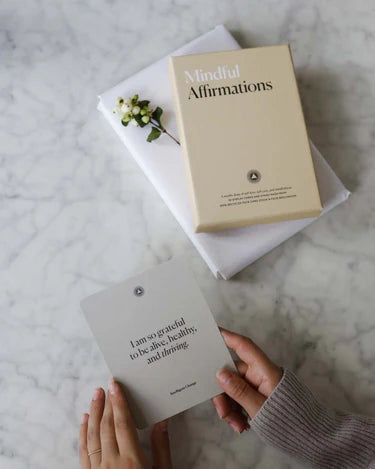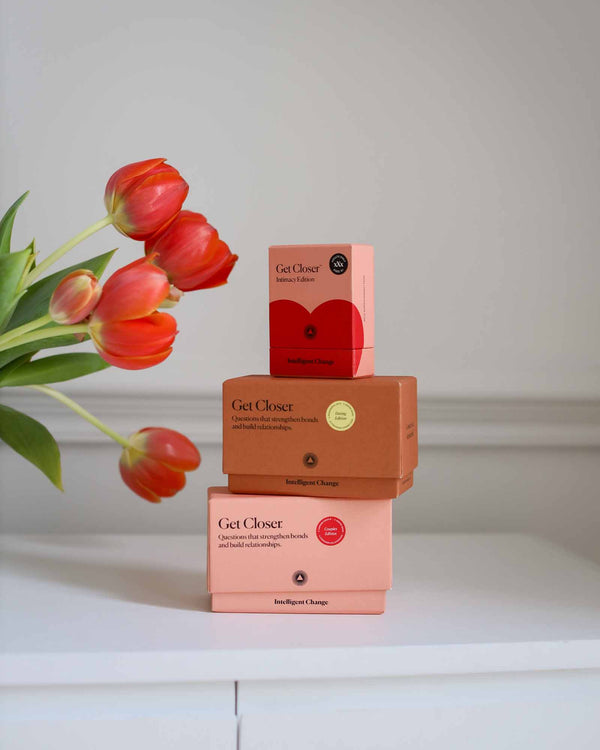Redefining Feminine Power
by Kinga Lewandowska
They say this is a men’s world. It has been for a long time. But it’s being transformed into a modern incarnation as we speak, one where there’s more and more room for kaleidoscopic points of view in areas once dominated solely by masculine energy. Still, if feminine power is now welcome at the cool kids’ table, it is thanks to the effort and dedication of the women who paved the way and fought for womenkind to be able to own their space in the Universe.
“Each time a woman stands up for herself, she stands up for all women.”
― Maya Angelou
So what exactly characterizes femininity? While some traditional interpretations probably spring to mind, femininity is a dynamic, multifaceted force that goes beyond stereotypes or societal expectations. When granted the freedom of authenticity, she’ll emerge in a flowery dress on Monday and a power suit on Tuesday. She’s a cunning shapeshifter.
Femininity is a mother, a wife, and a single, child-free owner of an adorable golden retriever. She’s the CEO of a large company, an astronaut, a hairdresser, and a cook. She can be soft, gentle, kind, and caring, but also radical, persistent, and determined. Modern femininity lives in a smile, a tear, or a word of constructive criticism, and reflects our ever-evolving understanding of gender and identity. She’s subjective, highly personal, and never the same in two people.
The world still tends to equal being a woman with being weaker. “You throw like a girl”, they say to a baseball player to insult them. But grit comes in all shapes and sizes. Vulnerability and asking for help project strength. Giving birth is toughness of the highest order. Earning a living in a competitive field takes a considerable amount of perseverance. Anyone who has ever walked in high heels knows tenacity like no other. Consistently rebelling against gender stereotypes takes much resolve. Women are on a first-name basis with strength.
Research shows that, contrary to popular belief, in prehistoric times women hunted alongside men. Even then, when “traditional” roles were easily assigned to ensure the survival of our species, women still contributed in more ways than fruit gathering and childbearing. And that wild nature of femininity lives on in every woman you know. The archetypes of the nurturing mother, the wise old sage, the passionate lover, and the resilient warrior are all wrapped up in female form with a bow of beauty and glow for decoration.
Clarissa Pinkola Estés, American writer and Jungian psychoanalyst, writes in her book Women Who Run with the Wolves, “A healthy woman is much like a wolf: robust, chock-full, strong life force, life-giving, territorially aware, inventive, loyal, roving. Yet, separation from the wildest nature causes a woman's personality to become meager, thin, ghostly, spectral. We are not meant to be puny with frail hair and inability to leap up, inability to chase, to birth, to create a life. When women’s lives are in stasis, or filled with ennui, it is always time for the wildish woman to emerge; it is time for the creating function of the psyche to flood the delta.”
When women allow themselves the freedom to be wild, they become artists who create the most fulfilling lives. Unrestricted women embody the mythological Muses of ancient Greece, the nine goddesses who inspired the creation of literature, science, and the arts. Often called upon by poets, artists, and philosophers for guidance, they signify the boundless potential of feminine strength. What could we learn from them and how do we internalize this education? We added a positive statement from Mindful Affirmations by Valeria Lipovetsky to each lesson to help affirm your power.
Calliope
The Muse of epic poetry and eloquence teaches us about the power of voice and leadership. She symbolizes courage, inspirational storytelling, and our capacity to take up space and speak out on important matters. She invites us to embrace our intellect and confidence.
Affirmation: As I uncover my authentic self, I inspire others to do the same.
Clio
The Muse of history teaches us about the power of legacy and learning from the past. She encourages us to honor our ancestors and learn from their stories. Clio represents memory and careful documentation of experiences to build continuity of feminine strength, as well as connection and sisterhood.
Affirmation: By embracing my femininity, I embody the grace and strength that shape history and redefine the future.
Erato
The Muse of romantic and lyrical poetry teaches us about the power of love, self-love, and romance. She embodies our capacity for passion and deep connection and reminds us of the strength that lies in vulnerability, tenderness, and emotional expression. Erato romanticizes creativity and inspires sublime beauty.
Affirmation: I treat myself with kindness and respect, knowing that I am worthy of my own love.
Euterpe
The Muse of music teaches us about the power of joy and creative expression. Euterpe promotes art as a means to deeply heal and uplift the soul. She represents the ability to breathe emotions into your creations, using your voice or instruments to bring joy, soothe pain, and communicate the inexpressible.
Affirmation: I value my emotions and use them to guide my actions.
Melpomene
The Muse of tragedy teaches us about the power of grief and emotional depth. Melpomene encourages the acknowledgment of pain and sorrow as valid parts of life. Facing trials and tribulations head-on leads to profound insight. She signifies holding space for difficult emotions to transmute them into art and wisdom.
Affirmation: Every struggle I overcome reveals the warrior within me, ready to face anything.
Polyhymnia
The Muse of sacred hymns and divine poetry teaches us about the power of sacredness and reflection. Polyhymnia is serious and contemplative and symbolizes the mysticism of the feminine. She teaches us about devotion, introspection, stillness, and deep spiritual connection. She depicts the ability to communicate with the divine.
Affirmation: My feminine energy is a source of strength.
Terpsichore
The Muse of dance and choral song teaches us about the power of the body and movement. Terpsichore promotes dance as physical expression, highlights sensuality as empowerment, and hails the liberation that comes from respecting the capabilities of your body. She encourages us to celebrate our physicality and move with grace.
Affirmation: I prioritize my well-being, understanding that it's the foundation for all I do.
Thalia
The Muse of comedy and idyllic poetry teaches us about the power of humor and playfulness. Thalia reminds us of the importance of laughter and light-heartedness. She uses humor as a tool for healing, resilience, and connection. She laughs in the face of adversity, finds joy in the mundane, and embraces her carefree nature.
Affirmation: As I radiate positivity, my reality transforms.
Urania
The Muse of astronomy and the celestial realm teaches us about the power of vision and deeper awareness. Urania can look beyond the obvious and mundane into the vastness of the cosmos. She encourages us to trust our intuition and recognize the interconnectedness of all things in the cosmic order.
Affirmation: In every moment, the universe reveals opportunities aligned with my vision.
“In mythos and fairy tales, deities and other great spirits test the hearts of humans by showing up in various forms that disguise their divinity. They show up in robes, rags, silver sashes, or with muddy feet. They show up with skin dark as old wood, or in scales made of rose petals, as a frail child, as a lime-yellow old woman, as a man who cannot speak, or as an animal who can. The great powers are testing to see if humans have yet learned to recognize the greatness of soul in all its varying forms”, writes Clarissa Pinkola Estés.
The essence of feminine and masculine energies reside in every one of us, sometimes in equal measure. While both are necessary for balance in the world, for millennia, the same strengths admired in men have been smothered in women. In the Garden of Eden Eve ate an apple from the Tree of Knowledge and was exiled for it. In one of the most influential religious texts, the Bible, the first woman was denied insight and punished for her eagerness to learn.
“Women's curiosity was given a negative connotation, whereas men were called investigative. Women were called nosy, whereas men were called inquiring. In reality, the trivialization of women's curiosity so that it seems like nothing more than irksome snooping denies women's insight, hunches, and intuitions. It denies all her senses. It attempts to attack her fundamental power”, writes Estés.
“I am my own muse. I am the subject I know best. The subject I want to know better.”
― Frida Kahlo
We stand on the shoulders of the ones who came before us. Many of those shoulders belonged to women whose names have been forgotten or erased from history, yet their voices echo through time and space, propelling the world toward positive change, toward a future where everyone is loved and respected. The baton of progress has now been passed to us and to you.
Against all odds, with every wrinkle and silver hair, women gain the kind of wisdom and grace that only fortify their femininity. Led by an inner voice and the voices of the sisterhood, we thrive. “What does this wildish intuition do for women? Like the wolf, intuition has claws that pry things open and pin things down, it has eyes that can through the shields of persona, it has ears that hear beyond the range of mundane human hearing. With these formidable psychic tools a woman takes on a shrewd and even precognitive animal consciousness, one that deepens her femininity and sharpens her ability to move confidently in the outer world”, adds Estés.
Here’s to all of you, ladies. We celebrate your strength and determination, your kindness and care, your inner and outer beauty, and everything that you are and what you stand for. Together we are making this world better.








